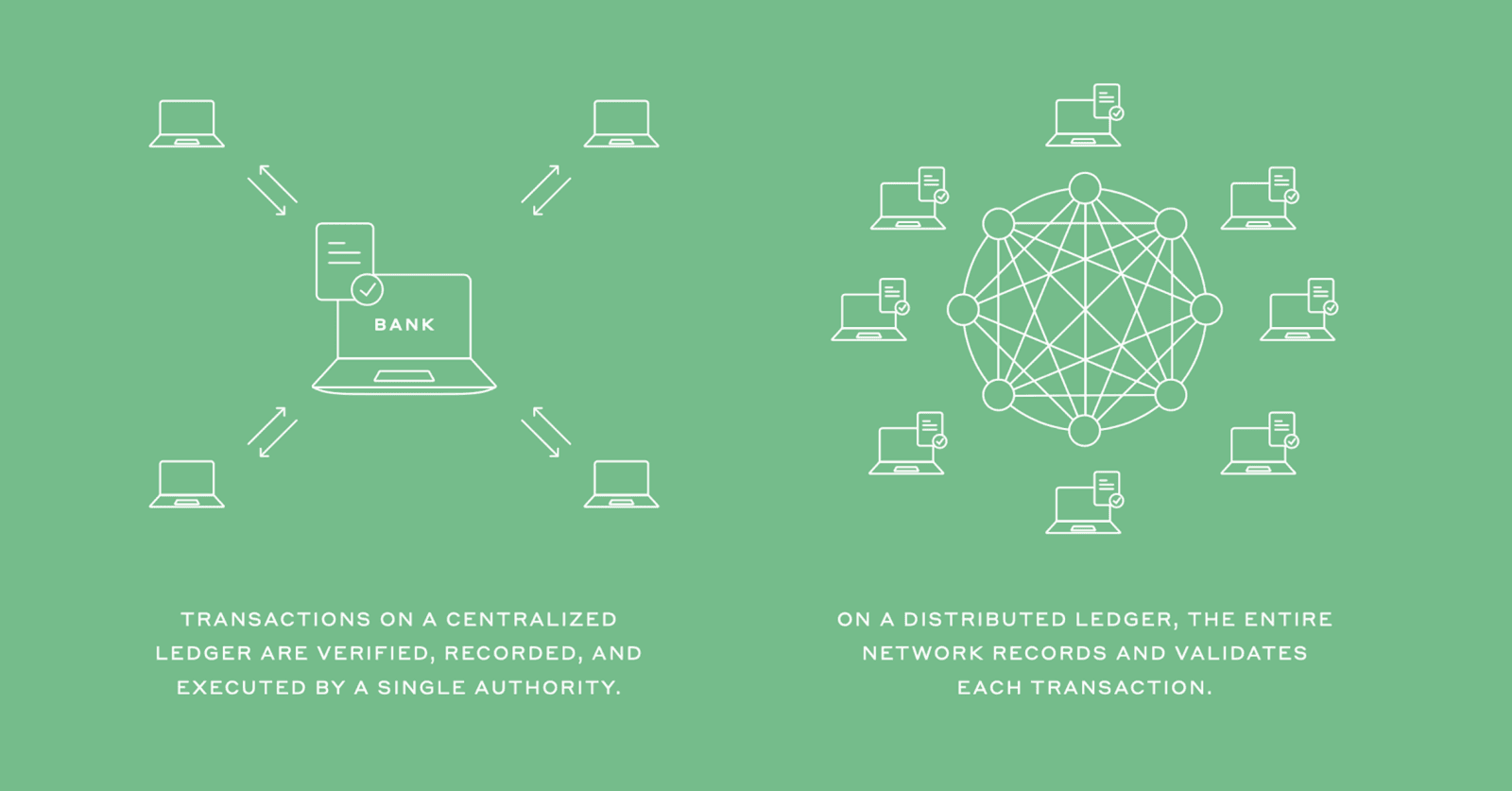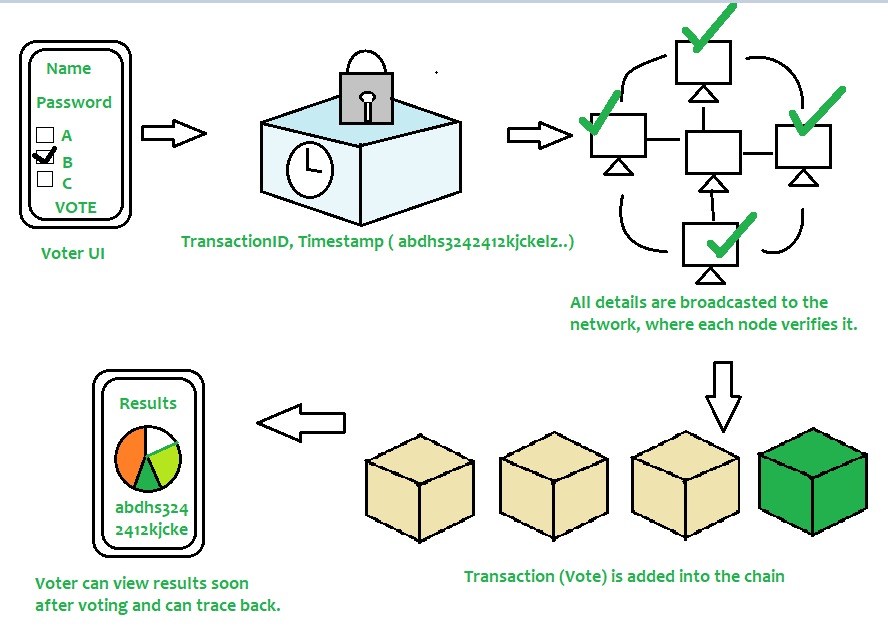Can blockchain technology optimise the voting system?
Blockchain's infrastructure is changing our lives in a way that most of us don't even realize. A few days ago, a reddit post titled "My state is exploring blockchain voting and I'm offered to give proof-of-concept" appeared, which is a very interesting topic that has recently been discussed.
Even in the 21st century, fraud can still exist in our voting system. Electoral frauds can be election manipulation, voter fraud, or vote rigging. Even worse, the hacker or manipulator can change the data in the voting system. In the current voting system, supposing that all the data is kept on an admin server, if hackers want to change the vote count for a candidate, you may even not notice! So, how will blockchain technology change the voting system and prevent fraud?
What's Blockchain technology?
A blockchain is a distributed ledger that is shared among the nodes of a computer network. Distributed ledger technologies (DLTs) , like blockchain, are peer-to-peer networks that allows many multiple participants to maintain their own identical copy of a shared ledger. Rather than requiring a central authority to update and communicate records to all participants, DLTs allow their members to securely verify, execute, and record their own transactions without relying on an intermediary. (Investopedia, 2020)
Source: Hedera: What are distributed ledger technologies (DLTs)?
The benefits for using blockchain in the voting system includes:
1. High security: bad actors cannot easily access the system;
2. Conveniency: people can vote everywhere;
3. Transparency: all the data is recorded in the blockchain;
4. Immutability: once the data is recorded in the public ledger, it cannot be changed or updated.
How blockchain can prevent fraud in the voting system
Blockchain is a peer to peer database and it is distributed among multiple network nodes at different locations. If people want to change data in one single node(or you can imagine as single digital device) , and it does not matches the records in other nodes, data in other nodes cannot be changed (Unless the bad actors can control 51% of the network). If someone is planning to "add" some data to the system, then this activity is recorded in the ledger permanently. Therefore, since blockchain's database is irreversible once it's published in the public ledger and the record cannot be altered by bad actors, it can facilitate the authenticity of the vote.
Visualization of the blockchain-based election
Brainstorming idea: Embedding Identity verification system in the voting system
Identity authenticity is crucial in the voting system;:it can prevent people from using fake ID or other people's identities to make unauthorized votes. If you have ever done KYC via Sumsub, Jumio, or any other third party when you register a bank or crypto account, they always require users to provide the national ID or passport, which matches the ID database and prevents people from using fake IDs. The face authentication verifies whether your face matches your ID or not. The biometric facial recognition helps enhance the whole identity verification process and prevent fraud or unauthorized use of other people's ID.
Let's consider a hypothetical scenario: what if our passport and driver's licence are replaced by a blockchain identity? because the data (such as ID) in the system is expected to be real and the smart contract will be implemented by the government or central authority. Imagine for a moment that your ID card is an NFT that can be used to confirm your identity in the real world, particularly when you are casting a ballot. But the real issue is: how can we safeguard people's ID privacy if we use public blockchain? Should we take into account adopting Private or Hybrid Blockchain?
Source: Meidasnet: Identity, KYC services powered by NFT blockchain technology
First large scale blockchain-based election in real world
In fact, Blockchain-based elections are being tested in Thailand. In November 2018, the Thai Democrat Party had organized a primary election to elect its new party leader using ZCoin, and it's the first-ever large-scale political election using blockchain technology. This election contains a total of 127,479 votes that came from all over Thailand. (Reuben Yap, November 13, 2018, published in Firo, World’s First Large-Scale Blockchain-Based Political Election Held on Zcoin’s Blockchain)
Voting system in crypto space now
The voting system in crypto space has already been done by many DAOs. Uniswap, one of the most famous protocol DAO, is governed by UNI token holders. UNI enables community ownership and active stewardship of the Protocol. UNI holders govern the Protocol through an on-chain governance process by voting through the Uniswap governance portal to allocate UNI towards grants, strategic partnerships, governance initiatives, additional liquidity mining pools, and other programs.
Blockchain technology can improve voting system transparency, prevent frauds, and perhaps increase voting rates. But the question is: Will it threaten people's privacy if their IDs, bank accounts, and other personal information are recorded in the centralized blockchain credit system that is controlled by the government or central authority?






Comments
Post a Comment